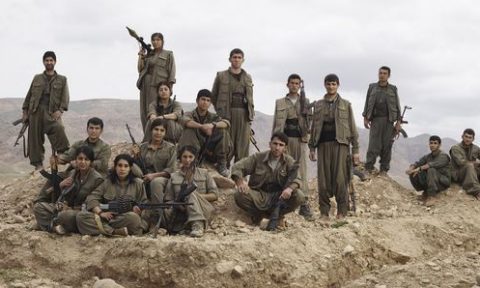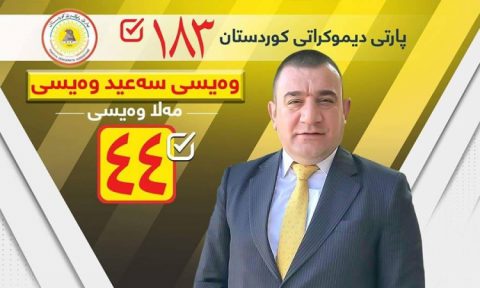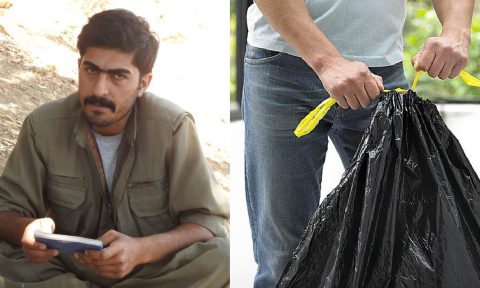Pishro Mohammadi: “After about 45 days, I realized this group had nothing to offer me.”
Report from Iranian Kurdistan Human Rights Watch in Marivan: Economic desperation can drive individuals to join groups like Komala. In certain Kurdish regions, unemployment and poverty can push people towards armed factions. These groups often dangle promises of financial security or job opportunities. Some may offer salaries or financial incentives to attract those struggling to make ends meet.
Pishro Mohammadi, a former Komala member, son of Eghbal, born on October 7, 1995, completed his ninth-grade education. He came into contact with the group via Instagram and fled to join Komala in December 2023. Ultimately, in February 2024, after 45 days, he decided to return home when his father visited the group’s base. None of his family members have ever been affiliated with armed groups.
Question: Could you please introduce yourself and explain why you joined Komala? Were you aware of the group’s true nature and history?
Pishro Mohammadi: I was born on August 7, 1995, in Marivan. I spent my childhood and adolescence there and completed my ninth-grade education. Due to personal circumstances, I had to drop out of school and take on various jobs. Life was tough; economic hardship and family pressures took their toll. A heated argument with my father became the turning point. In a fit of anger and despair, I left home. It was then that I encountered Komala on social media. They initially made many promises, including a high salary, which swayed me in my vulnerable state.
I had little knowledge of the group, just a vague awareness of their name circulating online. I wasn’t privy to their true objectives or operational methods. Overwhelmed by emotion and seeking an escape, I fell for their seemingly attractive promises. Now, I realize they were merely a trap. Had it not been for the argument with my father and financial struggles, I would never have joined Komala. It was a rash decision made in anger.
Question: What were your expectations upon joining Komala, and were they met?
Pishro Mohammadi: I expected to find a motivated and hopeful environment. I thought I could make a difference and earn a decent living. However, the reality was starkly different. Instead of meaningful activities, I was assigned to backbreaking labor, like construction work. It was physically demanding and demoralizing. I realized all the promises were lies, and I had traded one problem for another. Komala’s bases are typically in remote mountainous areas with limited access to basic services.
Question: What were your living conditions in Komala?
Pishro Mohammadi: The living conditions were harsh and unbearable. The bases lacked proper sanitation, education, and amenities. Due to the group’s military and security situation, even basic necessities like water, food, and hygiene were scarce. The days were filled with grueling physical labor, leaving no time for rest or reflection. The emotional and psychological pressures were immense; I felt trapped and controlled, which amplified my despair. Initially, I thought I could change things through hard work, but I soon realized the group had no future for me and was merely exploiting me. There was no salary; I was just a poorly paid construction worker in an armed group!
Question: What made you decide to leave the group?
Pishro Mohammadi: After about 45 days, I realized the group had nothing to offer me. I was just a tool, with no value to them. Dissatisfaction with Komala’s military tactics, political decisions, or social stances had alienated many members. I received none of the promised financial benefits or support. Negative experiences, such as physical or psychological harm, and witnessing the consequences of conflict, motivated my escape. During this time, my father, who had located me, visited the base and convinced me that life back in Iran could have meaning again. This brought me back to my senses, and I decided to leave. It was a difficult decision, as I feared repercussions. However, with my father’s support, I took the step.
Question: What happened after you left Komala?
Pishro Mohammadi: I returned to a normal life with my father. Initially, it was challenging to readjust to the environment I had fled. But gradually, I realized it was the best decision. I’m now doing simple jobs that give life meaning, and I hope to learn from this experience and never repeat my past mistakes.
Question: Finally, do you have a message for those in similar situations?
Pishro Mohammadi: Yes, absolutely. To anyone considering joining such groups as a solution to their problems, I say these groups offer nothing but despair and disillusionment. I learned to confront life’s challenges head-on, not run away from them. I hope others can learn from my mistakes and choose the right path.










